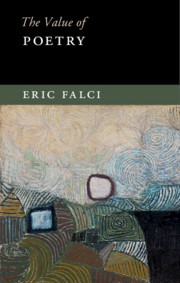1 - Attention and Play
Published online by Cambridge University Press: 20 November 2020
Summary
This chapter begins from the premise that poetry affords specific modes of attention and linguistic play, and that both are central to poetry’s value. It is a truism that poems tend to require a slower, more deliberate pace of reading in order for their intricacies and meanings to become fully apparent. Our contemporary culture is deeply inattentive, with distraction, multitasking, and disengagement all symptoms of social and cultural life. Many contemporary poems push against these conditions, whether implicitly or explicitly, by offering a space for noncoercive attention. The compaction or density of poetry isn’t simply a sign of its difficulty or unapproachability, it is more centrally an index of readerly possibilities. Poems condense, arrange, and splay language. On top of language’s system of syntax and grammar, poetry places a rhythmic and sonic grid – whether based on a conventional metrical scheme or not. In part, this chapter exfoliates Roman Jakobson’s “poetic function” in order to suggest the various ways that contemporary poetry mobilizes an assortment of grids, patterns, and schemes as part of its compositional unfolding. It includes readings of poems by Paul Muldoon, Maggie O’Sullivan, Seamus Heaney, Jen Hadfield, and Harryette Mullen.
- Type
- Chapter
- Information
- The Value of Poetry , pp. 19 - 48Publisher: Cambridge University PressPrint publication year: 2020

